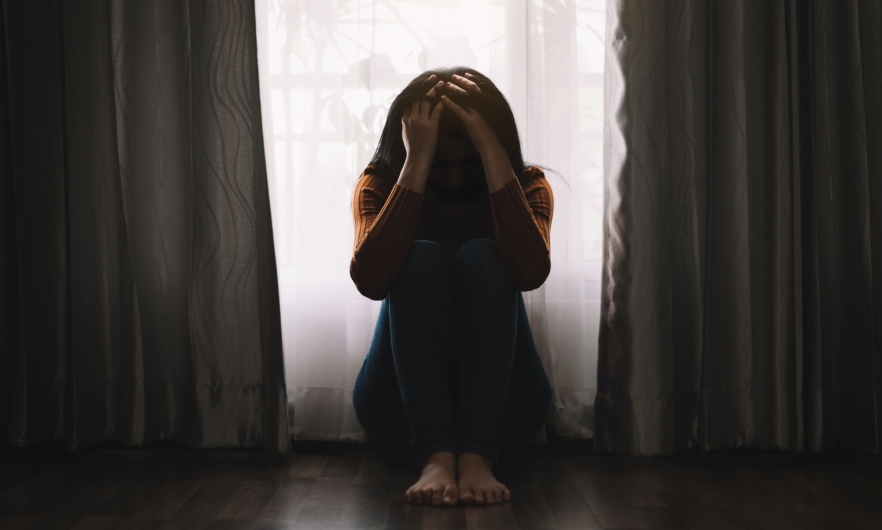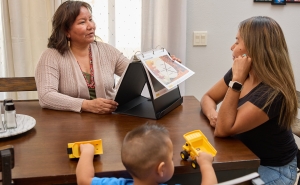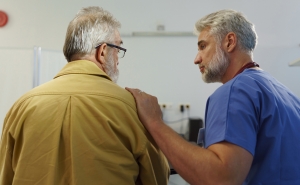Nearly 1 in 10 Adults in the U.S. Experienced a Mental Health Crisis Last Year
New study shows significant disparities in mental health among groups

A new study led by researchers in the Johns Hopkins Bloomberg School of Public Health Department of Health Policy and Management provides a national estimate of self-reported mental health crises, with pronounced disparities by age, race, and socioeconomic status and circumstances.
As part of the new study, fielded in the spring of 2025, more than 1,900 U.S adults were asked if they had experienced a mental health crisis in the past year. The survey defined crisis as times when one’s thoughts, feelings, or behaviors were too much to handle and required prompt assistance. The new survey is part of the CLIMB study, a nationally-representative, longitudinal study aimed at capturing trends in mental health, financial health, and stressors from 2020 onwards. The paper was published online on August 18, in the journal Health Affairs Scholar.
The survey found that young adults ages 18 to 29 reported the highest crisis prevalence at 15.1%, compared to 2.6% of those over 60. Black (11.8%) and Hispanic (10.5%) adults reported higher rates than white adults (7.4%). Rates were higher among those reporting depression or post-traumatic stress disorder—22.4% in each group—and were highest of all among people who reported experiencing housing instability, at 37.9%.
“These numbers show just how common moments of acute distress are, and how unevenly they’re distributed across the population,” says lead author and assistant professor Andrew Anderson, PhD. Additionally, the study found that people with lower income were more likely to report experiencing a past-year mental health crisis.
“People with fewer assets were more likely to experience mental health crises, highlighting the importance of economic and social factors in addressing upstream mental health,” says assistant professor Catherine Ettman, PhD, senior paper author and leader of the CLIMB Study.
Nearly three-quarters of those in crisis reported seeking some form of help. The most common sources were health care providers (53.2%) and family or friends (39.8%). Fewer than one in five reported using the national 988 Suicide & Crisis Lifeline, and less than 10% reported engaging a mobile crisis team—trained professionals who are dispatched to the individual’s location for immediate, face-to-face intervention and support. For those who did not seek help, common reasons included believing they could handle it themselves, not knowing where to go, or concerns about cost and stigma.
The findings coincide with ongoing efforts to improve the crisis response system in the United States, such as the establishment of Certified Community Behavioral Health Clinics, the extension of mobile crisis teams, and the implementation of 988. The study shows that many crisis-affected individuals avoid these more recent services, opting instead for informal support systems.
The authors note that the gap between the availability of resources and their use by those in crisis may be the result of insufficient knowledge, trust, or accessibility. Respondents' reliance on health care providers and family or friends also reinforces the ongoing importance of personal networks and primary care in managing mental health crises.
“This isn’t just about adding more crisis hotlines or clinics,” Anderson says. “It’s about making sure the services we already have are visible, trusted, and connected to the support systems people turn to first—their doctors, their families, and their communities.”
The authors advocate for targeted outreach to groups with the highest burden of crisis, including younger adults, those with low incomes, and individuals experiencing housing instability, while continuing to integrate formal crisis services with community-based and informal supports.
“Mental Health Crises and Help-Seeking Among U.S. Adults in 2024 – 2025” was co-authored by Matthew Eisenberg, PhD, Alene Kennedy-Hendricks, PhD, Brian C. Castrucci, DrPH, Sandro Galea, MD, DrPH and Catherine K. Ettman, PhD. Funding was provided by the Johns Hopkins Center for Mental Health and Addiction Policy, the Johns Hopkins Center for Health Disparities and the de Beaumont Foundation.





